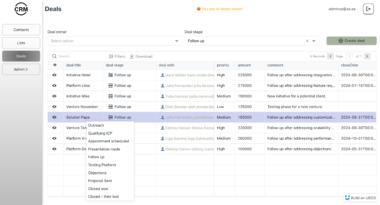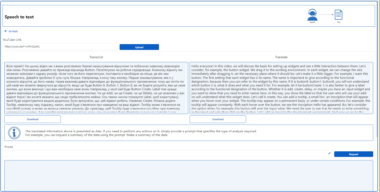PubChem MCP Server

The PubChem MCP Server provides a bridge between AI assistants and PubChem’s chemical database through the Model Context Protocol (MCP). It allows AI models to search for chemical compounds and access their detailed information in a programmatic way.


 Core Features
Core Features
Compound Search: Query PubChem compounds by name, SMILES, or CID
Chemical Structure: Access molecular structures and identifiers
Property Data: Retrieve detailed chemical and physical properties
Advanced Search: Combine multiple parameters for precise queries
Molecular Visualization: Generate and display molecular structures
Property Analysis: Compare properties across multiple compounds
Local Storage: Save frequently used compounds for faster access
Chemistry Prompts: Specialized prompts for chemical analysis
 Quick Start
Quick Start
Installing via Smithery
To install PubChem Server for Claude Desktop automatically via Smithery:
Claude
npx -y @smithery/cli@latest install @JackKuo666/pubchem-mcp-server --client claude --config "{}"
Cursor
Paste the following into Settings → Cursor Settings → MCP → Add new server:
- Mac/Linux
npx -y @smithery/cli@latest run @JackKuo666/pubchem-mcp-server --client cursor --config "{}"
Windsurf
npx -y @smithery/cli@latest install @JackKuo666/pubchem-mcp-server --client windsurf --config "{}"
CLine
npx -y @smithery/cli@latest install @JackKuo666/pubchem-mcp-server --client cline --config "{}"
Installing Manually
Install using uv:
uv tool install pubchem-mcp-server
For development:
# Clone and set up development environment
git clone https://github.com/JackKuo666/PubChem-MCP-Server.git
cd PubChem-MCP-Server
# Create and activate virtual environment
uv venv
source .venv/bin/activate
uv pip install -r requirements.txt
 Usage
Usage
Start the MCP server:
python pubchem_server.py
Once the server is running, you can use the provided MCP tools in your AI assistant or application. Here are some examples of how to use the tools:
Example 1: Search for compounds by name
result = await mcp.use_tool("search_pubchem_by_name", {
"name": "aspirin",
"max_results": 3
})
print(result)
Example 2: Search for compounds by SMILES notation
result = await mcp.use_tool("search_pubchem_by_smiles", {
"smiles": "CC(=O)OC1=CC=CC=C1C(=O)O", # Aspirin's SMILES
"max_results": 2
})
print(result)
Example 3: Get detailed information for a specific compound
result = await mcp.use_tool("get_pubchem_compound_by_cid", {
"cid": 2244 # Aspirin's CID
})
print(result)
Example 4: Perform an advanced search with multiple parameters
result = await mcp.use_tool("search_pubchem_advanced", {
"name": "caffeine",
"formula": "C8H10N4O2",
"max_results": 2
})
print(result)
These examples demonstrate how to use the four main tools provided by the PubChem MCP Server. Adjust the parameters as needed for your specific use case.
 MCP Tools
MCP Tools
The PubChem MCP Server provides the following tools:
search_pubchem_by_name
Search for chemical compounds on PubChem using a compound name.
Parameters:
name(str): Name of the chemical compoundmax_results(int, optional): Maximum number of results to return (default: 5)
Returns: List of dictionaries containing compound information
search_pubchem_by_smiles
Search for chemical compounds on PubChem using a SMILES string.
Parameters:
smiles(str): SMILES notation of the chemical compoundmax_results(int, optional): Maximum number of results to return (default: 5)
Returns: List of dictionaries containing compound information
get_pubchem_compound_by_cid
Fetch detailed information about a chemical compound using its PubChem CID.
Parameters:
cid(int): PubChem Compound ID (CID)
Returns: Dictionary containing compound information
search_pubchem_advanced
Perform an advanced search for compounds on PubChem.
Parameters:
name(str, optional): Name of the chemical compoundsmiles(str, optional): SMILES notation of the chemical compoundformula(str, optional): Molecular formulacid(int, optional): PubChem Compound IDmax_results(int, optional): Maximum number of results to return (default: 5)
Returns: List of dictionaries containing compound information
Usage with Claude Desktop
Add this configuration to your claude_desktop_config.json:
(Mac OS)
{
"mcpServers": {
"pubchem": {
"command": "python",
"args": ["-m", "pubchem-mcp-server"]
}
}
}
(Windows version):
{
"mcpServers": {
"pubchem": {
"command": "C:\Users\YOUR_USERNAME\AppData\Local\Programs\Python\Python311\python.exe",
"args": [
"-m",
"pubchem-mcp-server"
]
}
}
}
Using with Cline
{
"mcpServers": {
"pubchem": {
"command": "bash",
"args": [
"-c",
"source /home/YOUR/PATH/mcp-hub/PubChem-MCP-Server/.venv/bin/activate && python /home/YOUR/PATH/mcp-hub/PubChem-MCP-Server/pubchem_server.py"
],
"env": {},
"disabled": false,
"autoApprove": []
}
}
}
After restarting Claude Desktop, the following capabilities will be available:
Searching Compounds
You can ask Claude to search for chemical compounds using queries like:
Can you search PubChem for information about aspirin?
The search will return basic information about matching compounds including:
• Compound name
• CID (PubChem Compound ID)
• Molecular formula
• Molecular weight
Getting Compound Details
Once you have a CID, you can ask for more details:
Can you show me the details for compound with CID 2244?
This will return:
• IUPAC name
• Molecular formula
• Molecular weight
• SMILES notation
• InChI and InChIKey
• Physical and chemical properties
• Synonyms
 TODO
TODO
visualize_compound
Generate and display a 2D or 3D visualization of a chemical compound.
compare_compounds
Compare properties and structures of multiple compounds.
save_compound
Save a compound locally for faster access.
list_saved_compounds
List all saved compounds.
 Chemistry Prompts
Chemistry Prompts
The server will offer specialized prompts to help analyze chemical compounds:
Compound Analysis Prompt
A comprehensive workflow for analyzing chemical compounds that only requires a compound ID:
result = await call_prompt("deep-compound-analysis", {
"compound_id": "2244"
})
This prompt will include:
- Detailed instructions for using available tools
- A systematic workflow for compound analysis
- Comprehensive analysis structure covering:
- Chemical structure and properties
- Pharmacological properties
- Biological activities
- Applications and uses
- Safety and toxicity information
- Related compounds
 Project Structure
Project Structure
pubchem_server.py: The main MCP server implementation using FastMCPpubchem_search.py: Contains example code for searching PubChem
 Dependencies
Dependencies
- Python 3.10+
- FastMCP
- asyncio
- logging
- pubchempy (for PubChem API access)
- pandas (for data handling)
You can install the required dependencies using:
pip install mcp pubchempy pandas
 Contributing
Contributing
Contributions are welcome! Please feel free to submit a Pull Request.
 License
License
This project is licensed under the MIT License.
 Disclaimer
Disclaimer
This tool is for research purposes only. Please respect PubChem’s terms of service and use this tool responsibly.
PubChem MCP Server
Project Details
- JackKuo666/PubChem-MCP-Server
- Last Updated: 4/7/2025
Recomended MCP Servers

MOS CURRENT refactor of ore attempt at MCP for Claude Code Apr 18

This is a Chain-of-Recursive-Thoughts (CORT) MCP server.

MCP RSS is a Model Context Protocol (MCP) server for interacting with RSS feeds.

Ever been told to RTFM only to find there is no FM to R? MCP-RTFM helps you CREATE...

AI-powered FastMCP server for intelligent stock photo search, download, and attribution management from Unsplash
A Model Context Protocol (MCP) server for Eagle. Manages local media files (e.g., images, mp3, mp4)
Mcp server for postgres


MCP Server Test - 공개코드인 Weather를 이용하여 MCP Server를 구성하고 GitHub에 등록한 후 Smithery에 등록 하기 Test

Fork of Neo4j MCP server with environment variable support







